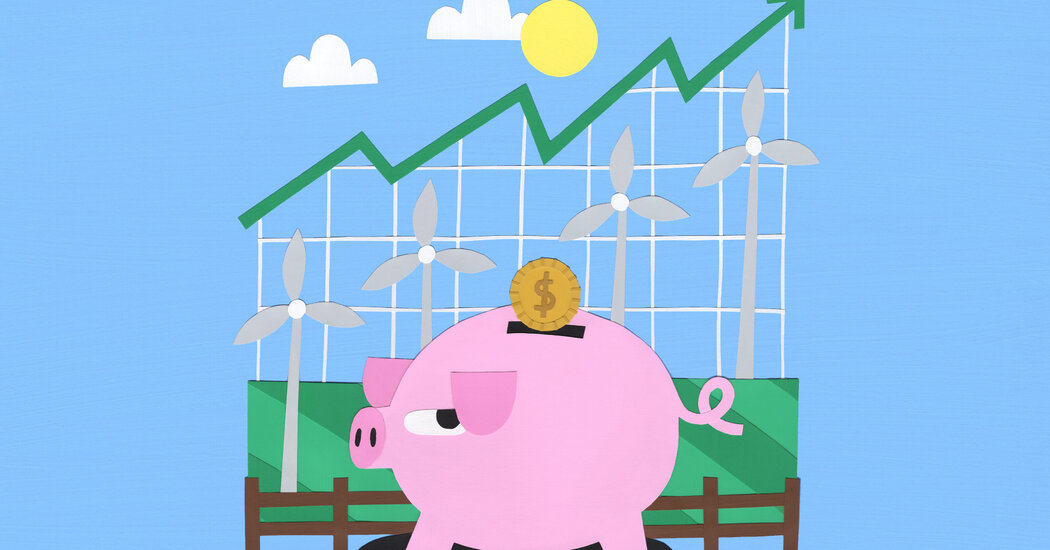DISCLAMER
Owning fossil fuel stock as part of a broad index fund isn’t an “endorsement”. Not owning fossil fuel stocks does nothing to hurt fossil companies. They made their money from the stock in the IPO. Any trading afterwards doesn’t effect their bottom line at all.
Even if they have similar performance, the eco-friendly funds charge you much more every year. The article mentions VTSAX (Vanguards total stock market index) fund. It has an expense ratio of 0.04%. That’s how much they charge you each year to own it. AMAGX (Amana Growth Investor) fund on the other hand has an expense ratio of 0.87%. They charge you more than 20x as much; Which more than erases the slightly better performance they’ve had.
If it helps you sleep at night, that’s fine. That’s great! It’s well worth it for that alone. But don’t for a moment think this is helping the environment at all. The only functional outcome it will have is putting a 0.5% or more drag on your portfolio.
You’ve gone from a passive fund to an active fund there I think, with the associated far higher expenses. You can get close to divested from the fossil fuels industry via the Vanguard FTSE Social Index Fund would get you an expense ratio of 0.14%, which is about where index funds were charging when they didn’t have the same economies of scale they do today.
True. That was just the first fund (That doesn’t require 100K) on the first link in the article.
There’s Vanguard’s passive ESG index fund, ESGV, which while not perfect, does eliminate 99% of fossil fuel investments according to fossilfreefunds.org, while only having an expense ratio of 0.09%
It actually does hurt them though. First of all companies offer shares after IPOs all the time. Things like stock options for employees and acquisitions with new stock are common. High share prices help a company that way. Then the next part is lending. Companies with high values get better lending options from banks and the market in form of bonds. This is already a problem for them in Europe, which has a lot of ESG. It is not going to kill them, but it will make life harder for them.
Any trading afterwards doesn’t effect their bottom line at all.
I’m no expert, but I think this really depends on the company. They often retain a significant percent of shares, and once public they are governed by a board of shareholders who can and do direct policy with the company. Not to mention a widely held belief that public companies are legally bound to protect their stock price, which affects decision-making throughout the company.
Hey Siri, what are stock buybacks and how do they help a company profit off of increases in stock price?
I don’t do Apple unless I’m paid to. What did she say?
There is no green in growth…period.
I doubt anyone (except maybe OP due to notifications) will be seeing this, but I sometimes browse stuff on my phone then come back to it later on my PC.
There’s some discussion and debate about whether increasing / decreasing the share price of a company as an “ESG investor” makes a difference, but I think this is missing something way more important. The problem with doing this from an “activist” approach is that you’re doing it in a market where the primary incentive of most of the other actors is monetary. They basically just want whatever makes the most money.
Let’s say that the entire stock market is 3 companies: Ace, Brilliant, and Catastrophe, and the share price of each is $10. If a bloc of “green investors” switches their portfolios to exclude Catastrophe due to the company’s environmental impact, the share price of Ace and Brilliant goes up, and the share price of catastrophe goes down. However, the majority of this effect is wiped out by other investors, who now see that Ace and Brilliant are overvalued on a purely monetary level, and Catastrophe is cheap - so the market corrects back to either the status quo (where all three are $10), or something very close to it.
Because the likely impact is negligible, it seems pertinent to only do this if the cost (compared to the alternative) is also negligible. For example, you can find not-as-shit ETF replacements that have only basic ESG / climate screening, but are consequently similarly priced to unscreened ETFs in terms of total fees.
Something else to consider (that’s more difficult to action) is how your ETF provider (etc) votes, since voting isn’t counter-weighted by other investors in the same way. I haven’t personally found a good summary resource for taking (easy) action on this as a retail investor, though some/most (?) ETF providers (etc) do publish both their voting record and what their voting policy is. Sifting through the voting records yourself is a good way to experience despair (there’s too many), but you can at least see if their stated voting policy has any concern for ESG etc. Of course, then you have to wonder if they’re just paying lip service to a “casual ESG investor” or whether they do actually vote differently or not, but hopefully it’s better than nothing.







